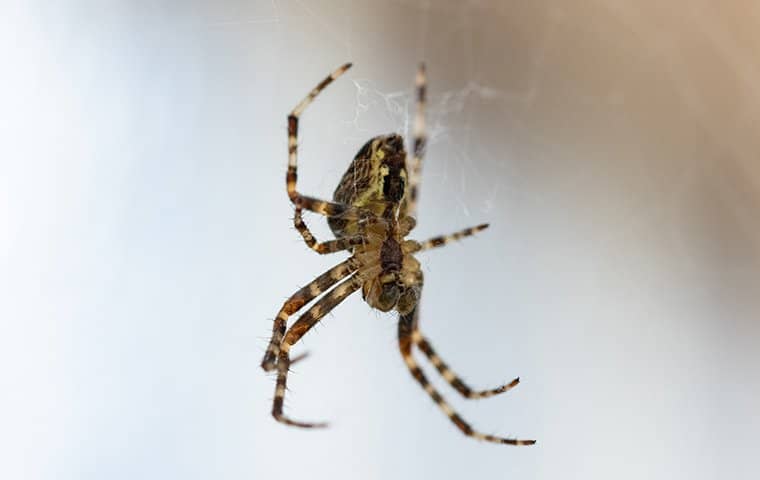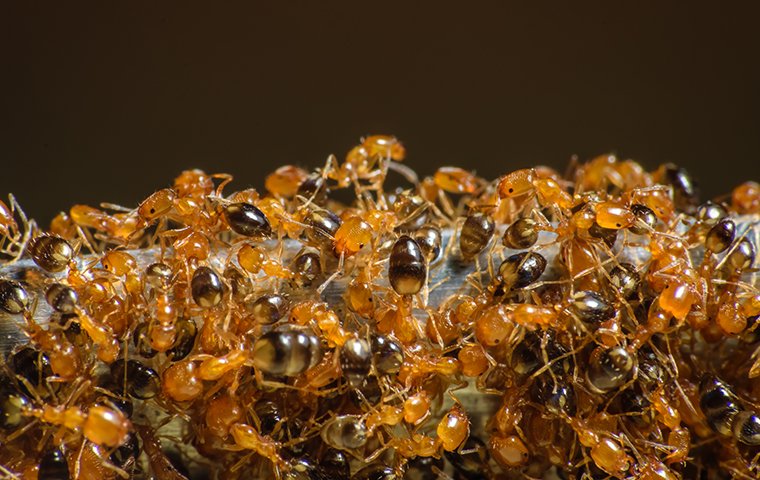
West Palm Beach's Ultimate Guide To Spider Control
March 31, 2024
Concerned about spiders in West Palm Beach? Discover how Empire Pest Defense can make your home spider-free!... Read More
Request Your Inspection Today! (561) 798-7216
Get StartedPharaoh ants thrive in the heat and humidity that Florida provides. These small ants live in large populations throughout our state. Pharaoh ants have yellow to brown bodies and darker colored abdomens. These ants live in colonies with hundreds of queens and thousands of workers.
Pharaoh ants can bud at the first sign of trouble. Budding is when a few queens and some other colony members move to a new location to set up another nesting site, ensuring the colony's survival. A single colony may have multiple nesting sites within a home or commercial property, making them challenging pests to eliminate.

Pharaoh ants are dangerous; they are much more of a concern than your typical household ant. These ants are vectors of more than a dozen disease-causing pathogens that can make people quite ill, including salmonella and streptococcus. Pharaoh ants can survive typical household ant treatments, and they are pests that get into everything from electrical equipment to food sources to patient wounds and IV's. Pharaoh ants require fast action to eliminate them from our homes and businesses before they can cause major damage.
Pharaoh ants have high moisture needs and are structural pests, though Florida's warm temperatures do allow these ants to maintain outdoor nests as well. Pharaoh ants move into any structure that provides them with sources of food and moisture. These ants have a wide diet and feed on proteins, sweets, and grease, all things they can acquire from our trash cans, kitchens, and eating areas. Things like leaky pipes, improperly ventilated homes, and roof leaks, offer pharaoh ants with the moisture they need to thrive.
Pharaoh ants are a significant pest problem inside homes, hospitals, hotels, commercial bakeries, schools, grocery stores, warehouses, and other places where food is prepared and stored. Inside structures, these ants nest behind walls near hot water pipes, behind sink cabinets, under floors, behind baseboards, and in poorly ventilated crawlspaces. In Florida, pharaoh ants will place outdoor nests in the damp soil under mulch, landscaping ties, fallen trees, and dense ground cover.
Reach out to the experts at Empire Pest Defense to get rid of pharaoh ants from your property. These ants have adapted to living indoors and are challenging to prevent and eliminate. Through detailed inspections, effective interior and exterior treatments, and ongoing services, you can be sure that these dangerous ants will be removed and won't return!
Empire Pest Defense is a local company with a deep commitment to our community and providing our customers with top-notch services. All of our technicians are licensed, insured, trained, and dedicated to helping West Palm Beach home and business owners keep their properties free of pests. Contact us today and learn more about our residential pest control and commercial pest management services and how to eliminate pharaoh ants from your property once and for all!
Avoid problems with pharaoh ants with the help of the professionals at Empire Pest Defense and our effective pest control solutions and practical prevention tips:
Keep gutters clear of debris to prevent water from pooling around your foundation.
Regularly inspect your house for leaking pipes.
Use dehumidifiers.
Make sure crawl spaces are well-ventilated.
Keep shrubbery cut back from your home's exterior to allow the sun to hit the soil and keep it dry.
Use a caulking gun to repair any defects in your home's exterior that may enable these ants to move into your home.
Eliminate favorite foraging sites by keeping lids on trash cans and compost bins.
Keep kitchen and eating areas free of crumbs, spills, and other food debris.
Complete the form below to schedule your no obligation inspection.

March 31, 2024
Concerned about spiders in West Palm Beach? Discover how Empire Pest Defense can make your home spider-free!... Read More

March 20, 2024
Is your West Palm Beach garden suffering from white flies? See how the pros at Empire Pest Defense can help restore its health.... Read More